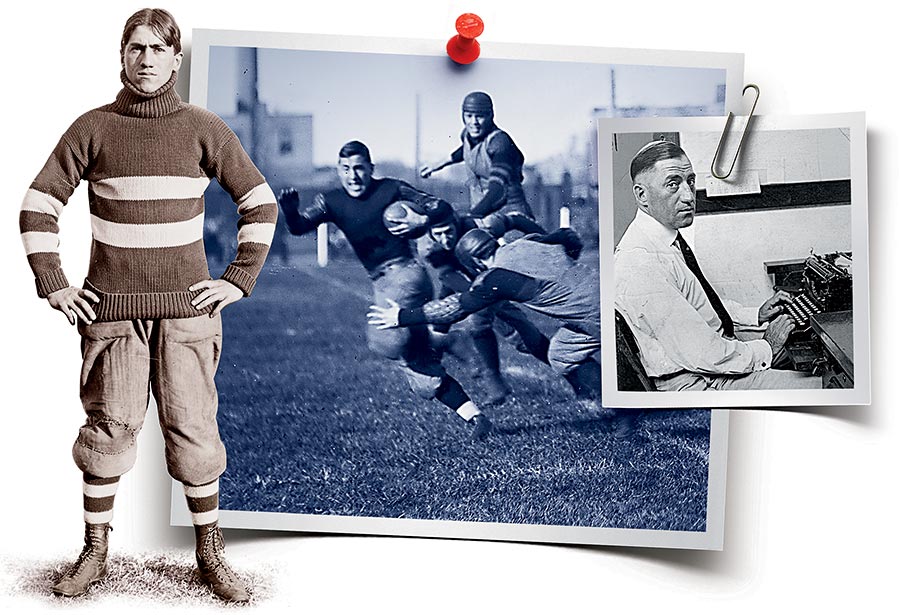1 The city’s first football superstar was puny.
Years before the Bears — or the NFL — existed, Walter Eckersall was a Chicago gridiron icon, making headlines first as a Hyde Park High School quarterback, then carrying the University of Chicago Maroons to an undefeated national championship season in 1905. He wasn’t exactly a fearsome presence, however. In Eckie, author Chris Serb describes him as “5 feet 6 inches tall and skinny, with slumped shoulders and a fragile appearance.” But he was speedy and had a knack for eluding tackles.
2 His punt led to a win in the “game of the century.”
On Thanksgiving Day of that 1905 season, the Maroons beat Michigan, which had won 56 in a row, by a tally rarely seen in football: 2–0. Serb calls the game a “masterpiece far more exciting than its low score would indicate.” Chicago earned those two points after Eckersall punted into the end zone and a Michigan player was tackled for a safety. “In common with everybody else from Michigan, I felt murderously inclined toward Eckie that day,” famed sportswriter Ring Lardner said.
3 The star player became a star sportswriter.
In 1907, when Eckersall’s college days were over, the Chicago Daily Tribune hired him. Over the next 23 years, he wrote 5,500 stories on a wide range of sports, including many about boxing and the Olympics. Serb calls Eckersall “the lens through which Chicago readers came to understand sports.”
4 Eckersall stood up for Black athletes.
At a time when many newspapers used slurs against prizefighter Jack Johnson, Eckersall interviewed not only the heavyweight champ but also his local fans. “Eckie took the boxer’s side in various disputes, exposing the injustices that Johnson faced, including the refusal of various white contenders to enter the same ring,” Serb writes. “He treated Black athletes not as curiosities but with dignity, as athletes and as men.”
5 He created two iconic athletic competitions.
In 1917, as a Tribune writer, Eckersall started the Silver Skates ice-skating race, an annual event that is now run by the park district. Then in 1923, “Eckersall hit on the biggest idea of his career: an amateur boxing tournament,” Serb writes. ”The Golden Gloves continue today, and the tournament has remained relevant long after its founder was more or less forgotten.”



